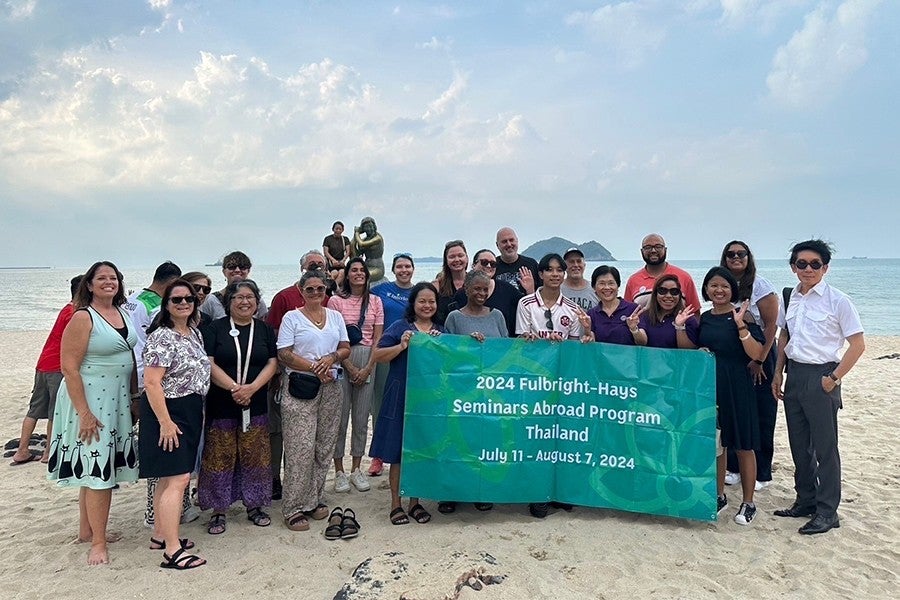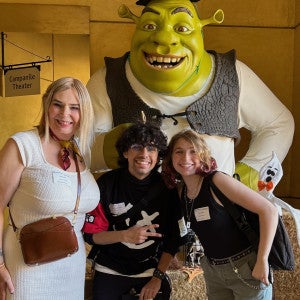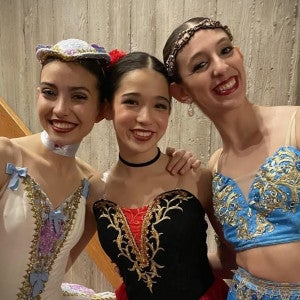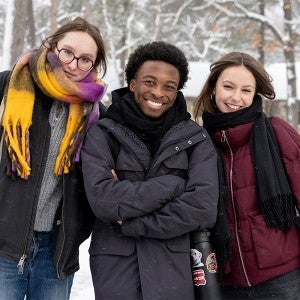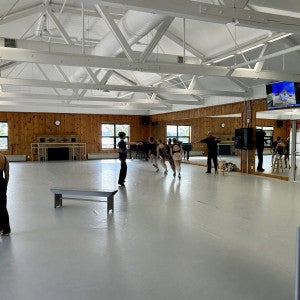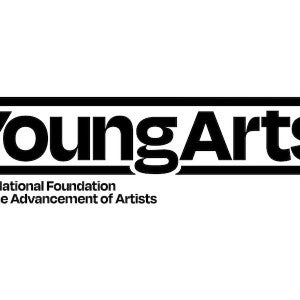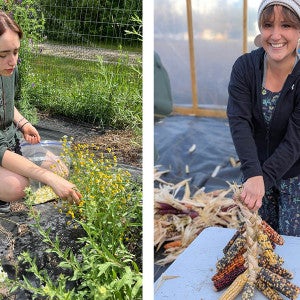International Student Services Manager Kalyn Rabuse explores Thailand through Fulbright-Hays Seminars Abroad Program
From learning to care for elephants to meeting educators from across the United States, Rabuse shares the highlights of her four-week adventure.
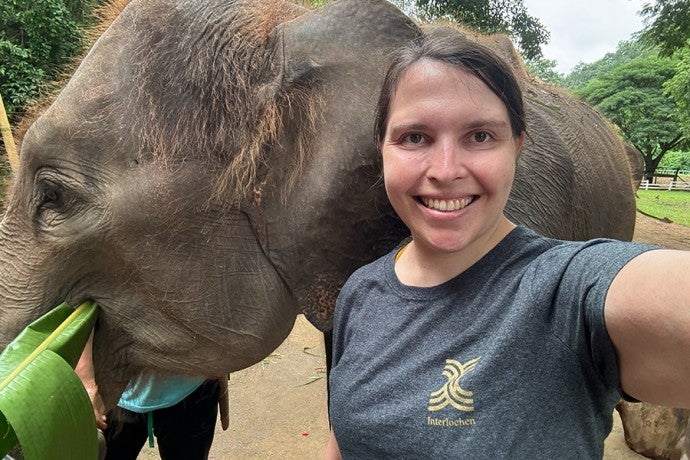
International Student Services manager Kalyn Rabuse takes a selfie with an elephant during her Fulbright-Hays Seminars Abroad program in Thailand.
This summer, Interlochen’s International Student Services Manager Kalyn Rabuse spent four weeks traveling in Thailand as part of the U.S. Department of Education’s Fulbright-Hays Seminars Abroad Program.
Rabuse was one of just 16 secondary school educators from across the United States selected to participate in the prestigious program. The selectees visited five cities in Thailand—including Chiang Mai, Bangkok, and Songkhla—while exploring the theme Transformational Thailand: Toward a Sustainable and Inclusive Economy and Society. All participants will share what they learned with their community by developing a curricular project that will be implemented at their school.
Rabuse found out about the program from a graduate school classmate who participated in a previous Fulbright-Hays program. After considering the program for several years, Rabuse felt the timing and the theme of the 2024 trip aligned with her schedule and interests.
“This was the year that I felt like it was time to apply, but I also think that it’s a really interesting part of the world,” Rabuse says. “I’ve been to Asia before, but I haven’t spent much time in Southeast Asia. I was really excited to spend a little bit more in-depth time in a country in that part of the world.”
As part of the rigorous application process, Rabuse submitted her résumé and wrote three essays: One on her background with international experiences; one on why she wanted to explore this year’s theme and location; and one proposing her curricular project. Rabuse learned she had been selected to participate in the program in April.
From July 11 to Aug. 7, Rabuse and the other participants traveled in Thailand—sometimes enjoying as many as four events per day.
“We did so many different things,” Rabuse says. “We did everything from speaking with government officials to visiting schools, to meeting with entrepreneurs and tech startups in different communities. We also met with farmers and groups studying alternative meat—and everything in between.”
Although Rabuse says it’s difficult to choose her favorite part of the trip, two experiences stand out.
“We visited an elephant community that was focused on repopulation,” Rabuse says. “We got to learn how to take care of the elephants and inspect them for health. We also got to feed them and walk them into the river. That was pretty incredible.”
Another highlight was meeting a fashion designer in Chiang Mai who partners with local women to create garments out of hand-embroidered fabrics.
“[The designer] started this initiative 15 years ago,” Rabuse says. “He told the women, ‘I’m going to give you some fabric. Do whatever you want with it, and I’ll turn it into clothing.’ He started with ten women from the local community; now there are over 200 because they like doing it. He lets them work at their own pace and make their own embroidery designs, and he takes those designs and turns them into modern garments.”
Rabuse also enjoyed getting to know other “Fulbrighters”—both past and present.
“In addition to the benefits of learning about Thailand, I got to network with these amazing educators from across the United States,” Rabuse says of the other 15 participants. “It was just an incredible group of people. We continue to stay connected, and I'm sure we will continue to do so in the future.”
Many of the Thai leaders that Rabuse and the other participants met had their own past connections to Fulbright.
“These were people who came to the U.S. on a Fulbright 20 years ago, and are now giving back by speaking with our group in Thailand,” Rabuse says. “It was truly a network of Fulbrighters, which was amazing to see in and of itself.”
Now back in the United States, Rabuse is developing the post-trip curricular project that she will share with the Interlochen Arts Academy community.
“My goal is to spread the wealth,” she says. “I’m looking at partnering with our science classes, joining one of the faculty peer learning communities for sustainability, and potentially leading some virtual Q&As.”
Rabuse says the Seminars Abroad Program will also benefit the Academy community by helping her better serve the school’s international students.
“Anytime I get a chance to be immersed in a space that I have students coming from, it benefits my role, unequivocally,” Rabuse says. “Just reminding myself of the different environments students are coming from—having that knowledge—is really valuable. While I was there, I also got to meet with a couple of Interlochen families, which was wonderful.”
Rabuse hopes her experience will inspire her colleagues to seek out their own once-in-a-lifetime professional development opportunities.
“These are amazing opportunities,” she says. “You should keep an eye out for them, because they're out there. Taking advantage of them is a wonderful thing.”
